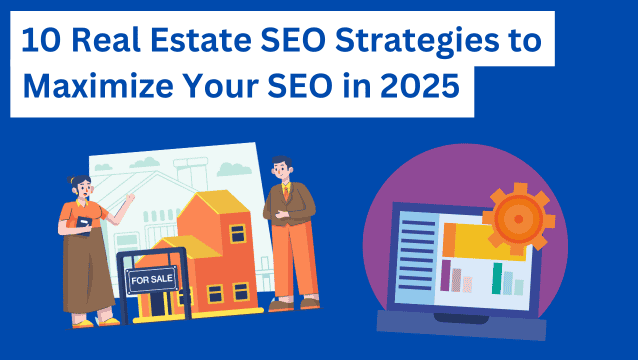If you’re a startup founder like me, you know how hard it is to grow your business in a crowded and competitive market. You have to deal with limited resources, uncertain outcomes, and constant pressure to deliver value to your customers and investors, not to mention the lack of brand awareness.
When we started uSERP, we knew we had an excellent product that could deliver a unique value no one else was offering. But no one knew who we were or what we did.
It’s the same with all startups, making your marketing strategy one of the most crucial aspects of your startup’s success. How do you reach your target audience, generate leads, and convert them into loyal customers? How do you stand out and build a strong brand identity? How do you get the word out that you exist?
While the answers to these and other questions are different for every startup, there’s one aspect of marketing all startups can equally benefit from, which is a startup marketing budget.
In this post, I’ll explain what a marketing budget is, why you need one for your startup, what goes into it, and how much you should set aside to fund your marketing efforts.
What is a marketing budget?
First things first! In short, a marketing budget is a plan. It’s a paper or digital document that outlines how much money you have available for your marketing efforts and how you plan to spend it. The plan covers a specific period of time, typically a month, a quarter, or a year.
As you allocate funds, consider areas like SEO, content marketing, customer service, and innovative tools like enterprise digital signage to enhance your brand presence. Outsourcing your customer service can help you manage costs while ensuring your customers receive top-notch support. By clearly outlining these expenses, a marketing budget ensures that you allocate your resources effectively to achieve your marketing goals.
Image Source
A marketing budget helps you to:
- Prioritize your marketing channels and activities to reach your target audience.
- Define the objectives and strategies of your marketing department.
- Allocate your resources and track your spending.
- Measure your performance and marketing ROI.
- Adjust your marketing plan as needed.
In the past, budgets were static, rigid documents you’d write at the beginning of your budgeting period and expect everyone else to follow. Today, marketing budgets are flexible, living, breathing tools you can update and revise as you learn from your results and feedback.
Types of marketing budgets for startups
A startup marketing budget isn’t a one-size-fits-all solution. Each startup has to create a marketing budget that suits its unique needs, goals, and circumstances. Each startup has to create a marketing budget that suits its unique needs, goals, and circumstances. Exploring tailored marketing plans for startups can help you align your budget with specific goals and your audience.
Marketing tools are a key part of this equation as they’re helping drive growth. Besides, a software asset management solution can help streamline budget allocation by efficiently tracking and managing software costs, ensuring optimal use of resources.
At the same time, organizing your brand’s creative files like logos, graphics, pitch decks, and campaign visuals can quickly become chaotic as more people get involved. Without a clear system, you risk using outdated assets or wasting time searching for the right version. This is where having a solid digital asset management setup can quietly support your marketing engine by keeping everything consistent and easy to find.
For example, when we started uSERP, we had a very limited marketing budget. We were bootstrapping the business and had to be careful with every marketing dollar we spent. Consequently, we set aside a fixed amount for marketing and had to allocate our marketing spend strategically.
Other better-funded startups have deeper pockets, giving them more flexibility when reaching out to potential customers.
These examples highlight the fact that there are different ways to create a marketing budget for your startup.
Here are the three most common types of startup marketing budgets and when to use them:
Fixed marketing budgets
A fixed marketing budget is when you set a specific amount of money for your marketing activities, like we did when we started uSERP. For example, you may decide to spend $5,000 per month on marketing, regardless of your revenue, sales, or profits.
These types of marketing budgets are simple and easy to implement and are best suited for startups in the early stages of development that don’t have a standalone marketing department. To better manage and visualize how these fixed allocations impact overall business performance, many startups turn to tools like Pigment software, which helps streamline financial planning and budget forecasting in real-time.
It’s also a good option for startups looking for a clear and consistent monthly marketing budget and a clear and consistent marketing strategy.
Variable or flexible marketing budgets
A variable marketing budget is the opposite of a fixed budget. It’s when you adjust your marketing spending based on revenue, sales, profits, or marketing performance.
For example, you may allocate 10% of your monthly revenue to marketing for the first few months and increase it to 20% if you see a very positive marketing ROI and reach your business goals ahead of time.
A variable marketing budget is best suited for startups with a variable and unpredictable revenue stream and a dynamic and evolving marketing strategy.
In this case, it would be best to use resource management software to gain real-time insights into campaign performance and budget allocation. Email marketing can be particularly effective in this scenario, allowing startups to adapt their campaigns based on customer engagement and feedback.
Bonus: sending SMS via a mass text message application can be a great complement to your email efforts, to help you reach the most people possible.
Incremental marketing budgets
An incremental marketing budget is a variable budget where you base your marketing spending on your previous period’s spending. You then make small increments as needed.
An incremental marketing budget works best for startups with a solid marketing foundation, a loyal customer base, and a focused email marketing strategy to sustain growth efficiently. It’s also a good option for startups in the maintenance stage of their development that need to sustain and optimize their spending.
Consider allocating a portion of this budget to implementing an IVR system. By automating routine customer inquiries, you can reduce call center wait times and improve overall customer satisfaction, all while potentially freeing up funds for other marketing initiatives.
Why all startups need a marketing budget
Most entrepreneurs start a business for the thrill and excitement of creating something new and watching it grow. Budgeting frequently falls by the wayside since spending hours doing numbers and counting pennies isn’t exactly sexy.
Also, many early-stage startups don’t even have a separate marketing team (let alone a marketing department). So, if you’re a one-man army, you may wonder what the point is of planning everything to a T and putting everything down in black and white.
The truth is that a marketing budget is an essential tool for any startup, regardless of its size, stage, or industry. Here are three reasons:
- A startup marketing budget makes scaling your marketing easier as it lets you plan for long-term business growth and adapt to changing market conditions and customer expectations. It even allows you to consider proactive recruitment for essential marketing roles, helping you prepare for future growth rather than scrambling to hire reactively.
- It helps you prioritize spending on the most effective and efficient marketing tasks and channels for your business goals.
- It helps with tracking business expenses, monitoring marketing costs, and optimizing your ROI for better efficiency.
However, marketing isn’t free. It requires time, money, and effort. You need a marketing budget to spend your marketing money wisely and effectively.
3 Factors determining a startup’s marketing budget
So, how do you create a marketing budget for your startup? How do you decide how much to spend on marketing and how to distribute it across different channels and strategies?
While you’ll find many marketing budget templates online, there’s no simple or universal answer to these questions. However, tracking your spending is just as crucial as deciding where to allocate it. Using tools like an online receipt template can help you stay organized and make data-driven adjustments as needed.
You can also use an AI form generator to quickly create custom forms for budget approvals, expense tracking, or vendor feedback, saving you time and keeping everything streamlined.
Here are some key factors to consider when creating a business marketing budget for your startup:
#1 Estimated annual revenue
One of the most common ways to determine your marketing budget is to base it on your estimated annual revenue. This revenue is the amount you expect to earn from your sales in a year based on your prices and sales forecast.
Once you have your estimated annual revenue, you can use it as your marketing budget benchmark (we’ll discuss how in a minute).
#2 The size of your marketing team
The size of your marketing team also plays an important role. This is the number of people involved in your marketing processes, either as employees or as freelancers.
Your marketing team size affects your marketing budget in two ways.
- It represents part of your marketing expenses.
- Second, it determines your marketing capacity or the amount and quality of work and marketing campaigns your marketing team can produce.
You have to balance your marketing team size with your marketing budget and ensure that you have enough people to execute your marketing tactics but not too many that you overspend your revenue on marketing.
If your budget is tight and you can only afford one or two people on your marketing team, you might need to outsource some marketing work to freelancers or marketing virtual assistants.
#3 Your startup’s lifecycle stage
Finally, it’s important to consider your startup’s lifecycle stage, which is the phase of development that your startup is in (from the idea stage to the exit stage).
Your startup’s lifecycle stage determines your marketing goals, such as brand awareness, lead generation, customer acquisition, retention, or loyalty. It also determines your marketing strategy.
How much should a startup spend on marketing?
Now that we’ve covered the factors that determine your marketing budget, you’re probably wondering:
Ok, but how much should I actually spend on marketing? How do I know if I’m spending too little or too much?
As I said before, there’s no simple or universal answer to these questions. However, there are some industry benchmarks you can use as a guide.
According to a report by Gartner, the average marketing budget in 2023 for companies across all industries and sizes was 9.1% of their revenue, 0.4% less than in 2022.
The report also found that marketing budgets varied significantly by industry, company size, and growth stage.
For example, the marketing budget for consumer goods companies increased significantly from 8.0% in 2022 to 10.9% in 2023. In the same period, spending for companies in the finance industry decreased by 2.9% to 7.5% of total revenue, while spending was stable at an average of 9.1% in the retail sector.
While these numbers aren’t prescriptive, they can give you a general idea of how much other companies spend on marketing and how you compare them.
Marketing costs and expenses: Allocating your startup’s marketing budget
Once you have determined the financial investment in your marketing budget, you must decide how to allocate it across the different marketing costs and expenses. These are the specific items and categories you spend money on for your marketing activities.
It’s also important to consider allocating funds for brand identity services. These services can help establish a cohesive brand image across all marketing channels, enhancing the impact of your other marketing efforts. Brand identity services may include logo design, visual branding, and messaging strategy development.
There are many types of marketing costs and expenses, and they vary depending on your industry, product, and strategy. The following table outlines a few common examples.
| Marketing Cost or Expense | One-time or Recurring Payment | Examples |
| Web design and development | One-time | Web designer fees, domain name, WordPress theme, etc. |
| Web hosting | Recurring | Web hosting service, cloud storage, etc. |
| SEO and content marketing costs | Recurring | Creating marketing content, optimizing keywords, building high-authority backlinks, etc. |
| Marketing tools and software | Recurring | Marketing automation software, social media management tools, etc. |
| Market research and surveys | One-time | Focus groups, online surveys, etc. |
| Salaries and freelance fees | Recurring | Marketing staff payroll, freelance writers, designers, consultants, etc. |
| Paid advertising | One-time or recurring | Social media ads, radio, TV, etc. |
| Other marketing expenses | One-time or recurring | Traveling to trade shows, printing brochures, sponsoring events, etc. |
Why you should budget for SEO and content marketing
It’s hard to overstate the importance of SEO for modern businesses. A recent report from First Page Sage showed that organic traffic has the highest average conversion rate of all website traffic channels for B2C companies (2.60%) and the third-highest conversion rate for B2B companies (2.10%). This highlights the long-term value of investing in SEO, as website traffic drives more qualified visitors and fosters greater brand trust and visibility. By optimizing your website’s content, you can increase the likelihood of attracting high-intent users, which can directly lead to higher conversions and sustained growth.
SEO also offers a cost-effective approach compared to paid advertising, as it focuses on attracting users who are actively searching for products or services like yours.
While there is a push toward AI search and artificial intelligence optimization (AIO), I don’t think we’ll see a significant shift away from traditional SEO until companies like Google, Microsoft, Meta, and OpenAI sort out AI hallucinations effectively.
Therefore, SEO and content marketing will remain two of the most important and impactful aspects of marketing in 2024.
SEO and content marketing can help you:
- Generate qualified leads for your business.
- Build trust and authority in your niche.
- Drive organic traffic to your website.
- Convert and retain your customers.
In short, SEO and content marketing are robust and cost-effective ways to grow your online presence and generate leads for your startup. Nevertheless, pulling off effective SEO isn’t easy or quick. It requires time, money, effort, and often the help of AI technologies to automate and optimize processes, so SEO must have a special spot on your startup marketing budget.
Budgeting for an In-house SEO team vs. a marketing agency
Handling SEO by yourself as an entrepreneur can be daunting, especially if you’re unfamiliar with SEO best practices. If that’s your case, you have two options:
- Hire an in-house SEO team, or
- Outsource SEO to an agency like uSERP.
Both approaches require adequate planning and budgeting.
An in-house team may look cheaper on the outside. However, you must account for multiple separate costs. If you opt for an agency, you’ll only have to budget for a single expense: the agency’s fees. The agency will take care of everything else for you.
If that sounds like your cup of tea, you should consider uSERP, a performance-driven SEO, digital PR, and link-building agency.
At uSERP, we help ambitious brands get high-authority backlinks and make SEO their customer growth engine. If you’re running a startup and want to drive revenue from organic search 10x faster than with an in-house team, book a call now!
SEO: A critical item in your startup marketing budget
Creating a marketing budget for your startup is crucial for business success. However, it’s not a straightforward task. It requires careful planning, analysis, and execution.
The first decision to make is how much to allocate for marketing. While no two startups are the same, you can use the average marketing budget of around 9% of your yearly revenue as a starting point and optimize your marketing spending from there.
In this sense, one of the critical areas to focus on is SEO. If you want to simplify your startup marketing budget significantly while taking full advantage of one of the best-converting traffic sources for businesses on the internet, you should consider hiring an SEO agency like uSERP.
At uSERP, we help startups grow through performance-driven SEO, digital PR, and high-authority link building. If you’re running a startup and want to drive revenue from organic search 10x faster than with an in-house team, book a call now!


